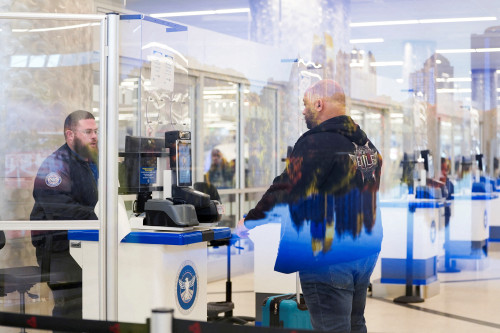By David Shepardson
WASHINGTON (Reuters) -The White House said on Friday it wants to cut funding for the Transportation Security Administration by $247 million, while boosting spending on rail and air safety.
The 2026 budget proposal seeks another $360 million for the Federal Aviation Administration to support air traffic controller hiring and salary increases and updates to its outdated telecommunications systems, and $400 million in new rail safety and infrastructure, citing a 2023 Norfolk Southern train derailment in East Palestine, Ohio.
The proposal also calls for cutting funding by $308 million for Essential Air Service, which subsidizes commercial air service to rural airports and is popular with Republican lawmakers.
A persistent shortage of controllers has delayed flights, and many controllers are working mandatory overtime and six-day weeks. The FAA is about 3,500 air traffic controllers short of targeted staffing levels.
During the first Trump administration, the White House proposed killing the essential air service program, but Congress opted to boost funding.
The Biden administration increased the size of the TSA, which has nearly 60,000 employees as air travel has increased in recent years. The TSA screened 904 million passengers in 2024, which was a record high and a 5% increase over 2023.
In its proposal on Friday to cut TSA officer levels, the White House said, “TSA has consistently failed audits while implementing intrusive screening measures that violate Americans’ privacy and dignity.” It was not immediately clear how many positions the White House wants to cut.
Transportation Secretary Sean Duffy next week plans to ask Congress for “tens of billions” of dollars over several years to fund a revamped air traffic control system. The budget calls for another $4 billion over several years, including $450 million for 2026 on a multiyear, multibillion-dollar radar replacement
program.
Last year, Democratic President Joe Biden sought $8 billion in funding over five years to modernize 377 critical radar systems that are aging and at risk of failure.
(Reporting by David Shepardson; Editing by Leslie Adler)


